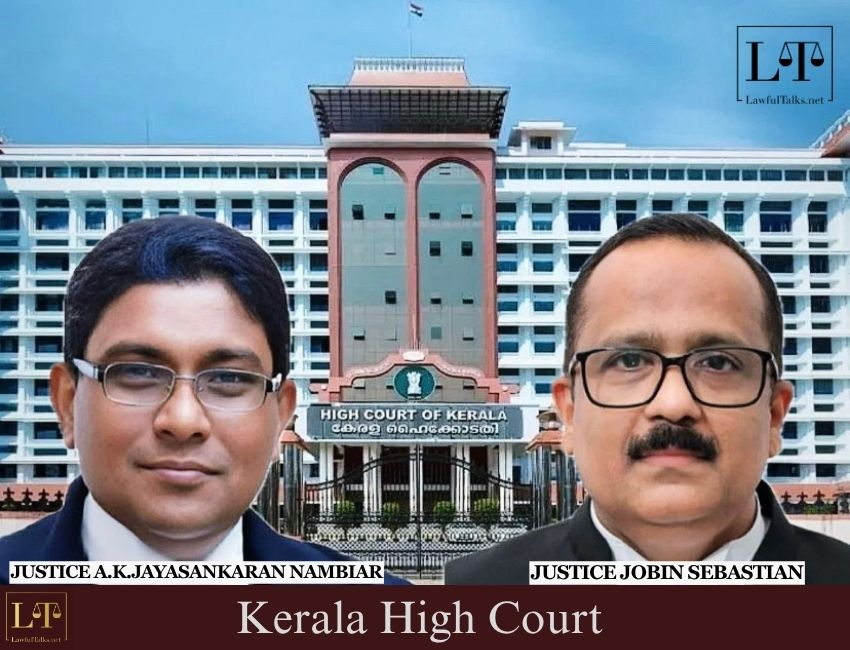Allahabad HC Sets Aside Afzal Ansari's Conviction, Allows Him to Continue as MP

In a major ruling, the Kerala High Court has acquitted Parimal Sahu, a migrant labourer from Assam, who had been convicted and sentenced to death by a trial court for the 2018 rape and murder of a 60-year-old widow. Division Bench comprising Justice A.K. Jayasankaran Nambiar and Justice Jobin Sebastian delivered the verdict.

Background:
According to the prosecution, Sahu, a resided of the same compound as the deceased, allegedly raped and murdered the 60-year-old woman who lived with her intellectually disabled son. The First Information Report (FIR) was registered based on a statement made by a relative of the deceased, who claimed that the victim’s son had identified Sahu (referred to as “Munna”) as the assailant.
The prosecution’s case rested primarily on the testimony of the victim’s son, who was both mentally and intellectually disabled. A medical certificate indicated that although the son was 35 years old biologically, his mental age was equivalent to that of a 7 1⁄2-year-old child.
Competency of the Witness:
The High Court observed that the trial court failed to conduct a voir dire test—a preliminary examination to determine the competency of a witness before recording the testimony of the victim’s son (PW4). The Bench held that this omission was a serious procedural lapse, particularly given the vulnerability of the witness.
“The non-conduction of voir dire examination will certainly create serious doubts regarding the competence of PW4 to depose and the reliability of his version, particularly when a vulnerable witness like PW4 is inherently susceptible to tutoring,” the Court remarked.
While the Court clarified that the absence of a voir dire test does not automatically invalidate a witness’s testimony, it emphasized that the trial court and the appellate court must exercise “meticulous care” in assessing such evidence.
The court noted that although the witness appeared coherent during examination-in-chief, his inability to respond meaningfully to straightforward questions during cross-examination raised doubts about his understanding of the proceedings and possible tutoring. Consequently, the Court held that his evidence had to be excluded from consideration.
"The upshot of the above discussion is that the evidence of PW4, upon which the prosecution heavily relies to prove the occurrence of the incident, has to be excluded from consideration since PW4 is found to be incompetent to testify", the Court concluded.
The Bench also rejected the prosecution’s reliance on statements allegedly made by Sahu to doctors during his medical examination, holding that such statements were inadmissible under Section 26 of the Indian Evidence Act. Referring to Supreme Court precedents, the Court clarified that the definition of “custody” extends to circumstances where an accused’s freedom is effectively restrained by the police, even without formal arrest. Therefore, the mere absence of policemen inside the examination room did not remove Sahu from the ambit of “police custody.”
“The mere fact that the policemen who brought him to the hospital for medical examination were standing outside the examination room did not bring him outside the scope of the phrase ‘person whilst in Police custody’ for the purposes of Section 26,” the Bench held.
Further, the Court observed that the alleged defensive wounds on Sahu’s hands were insufficient to establish his involvement. Forensic analysis found no traces of his skin cells on the victim, and other biological samples were inadequate for DNA testing. The Bench ultimately concluded that the scientific evidence favored the defence rather than the prosecution.
“The scientific evidence does not render any assistance to the prosecution to prove the involvement of the accused in the commission of the crime; rather, it tends to help the accused in establishing his innocence,” the Court stated.
Accordingly, the High Court set aside the conviction and death sentence imposed by the trial court, acquitting Sahu of all charges and directing his release from death row.
Advocates Mitha Sudhindran, Shreya Rastogi, Nadia Shalin, Moulika Diwarkar, Riji Rajendran, and Bhairavi S.N. appeared for the accused.
Special Public Prosecutor Ambika Devi S represented the State of Kerala.
Case Details: State of Kerala v. Parimal Sahu

Sanika Patil
Third Year BALLB Law Student
Latest Posts
Categories
- International News 19 Posts
- Supreme Court 390 Posts
- High Courts 383 Posts



















































































































































































































































































































































































































































































































































































































































































































































































































